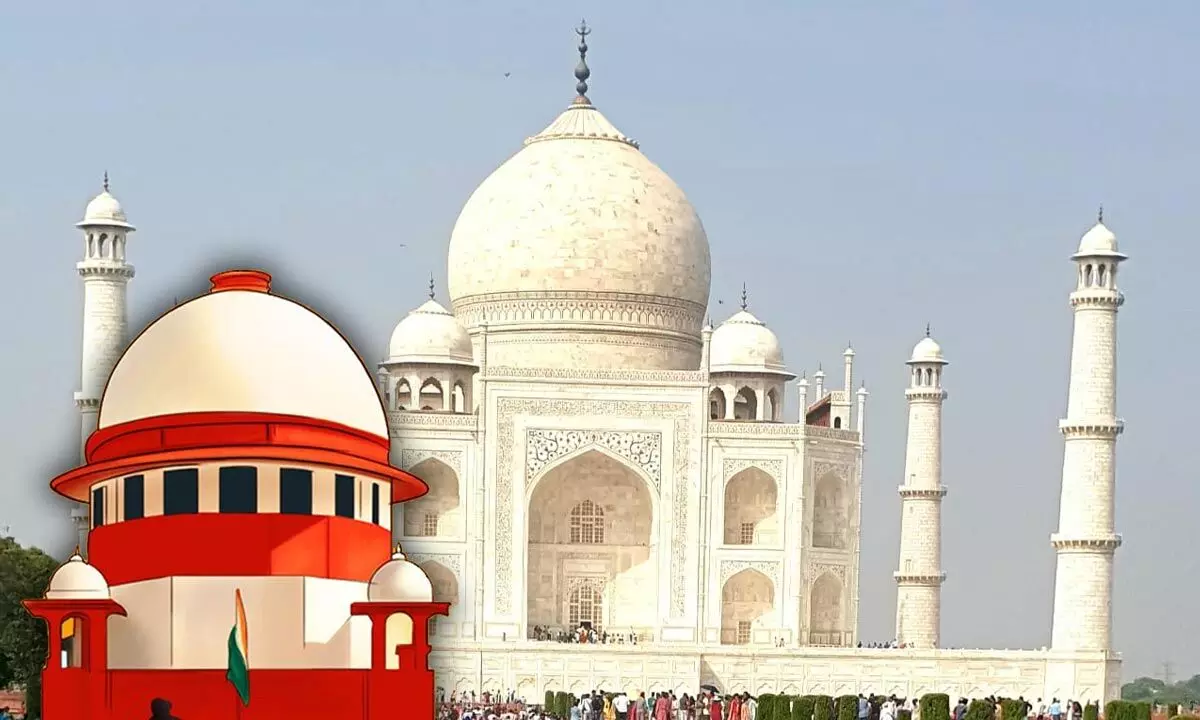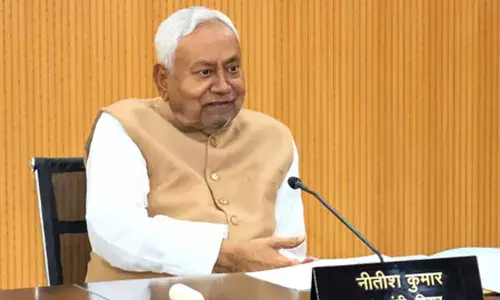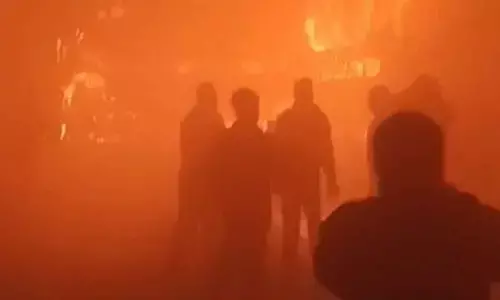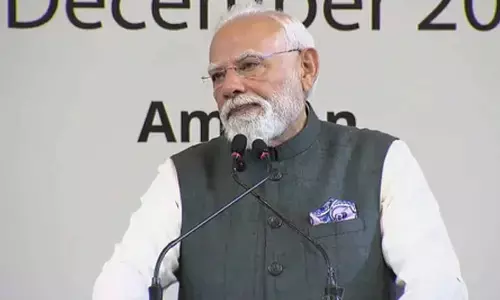Supreme Court junks plea seeking fact-finding inquiry into Taj Mahal's history

Supreme Court junks plea seeking fact-finding inquiry into Taj Mahal's history
The Supreme Court on Friday junked a plea seeking a direction for a "fact-finding inquiry" into Taj Mahal's history and also a direction for the "opening of 22 rooms" on the monument's premises. The monument is protected by the Archaeological Survey of India (ASI).
New Delhi: The Supreme Court on Friday junked a plea seeking a direction for a "fact-finding inquiry" into Taj Mahal's history and also a direction for the "opening of 22 rooms" on the monument's premises. The monument is protected by the Archaeological Survey of India (ASI).
A bench comprising Justices M.R. Shah and M.M. Sundresh said the high court was not in error in dismissing the petition. Terming it a 'publicity interest litigation', the top court dismissed the plea.
In May this year, the Allahabad High Court declined to entertain a plea by one Rajneesh Singh, who claimed to be the media in-charge of the BJP's Ayodhya unit. The high court noted that the petitioner failed to establish which of his legal or constitutional rights were being infringed.
The petitioner had argued before the high court that many Hindu groups have claimed that Taj Mahal is an old Shiva Temple which was known as Tejo Mahalaya. He contended that this theory was supported by many historians as well.
The high court pulled up the petitioner for filing a plea in a casual manner and said it cannot pass an order under Article 226 of the Constitution in the matter.
The petitioner had contended that the controversy should be put to rest and argued that 22 rooms were situated in the upper and lower portion of the four-storied building of the Taj Mahal, which were permanently locked.
Citing historians and Hindu worshippers, the petitioner claimed it is believed that a Shiva temple lies in those rooms. However, the high court declined to entertain the plea.














